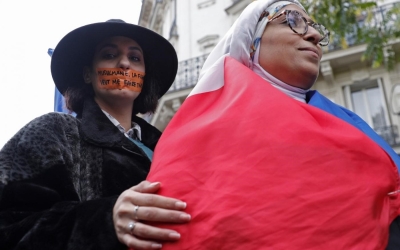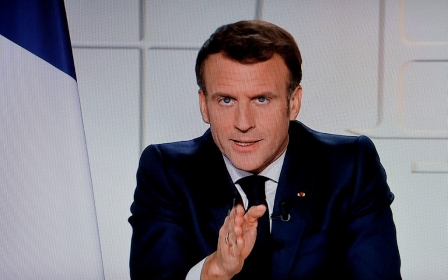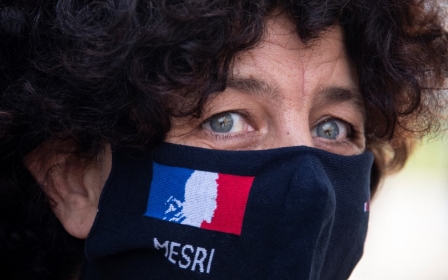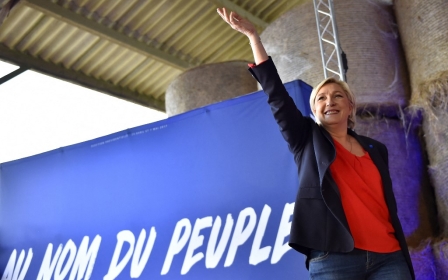France's Muslims face another five years of hostility under Macron
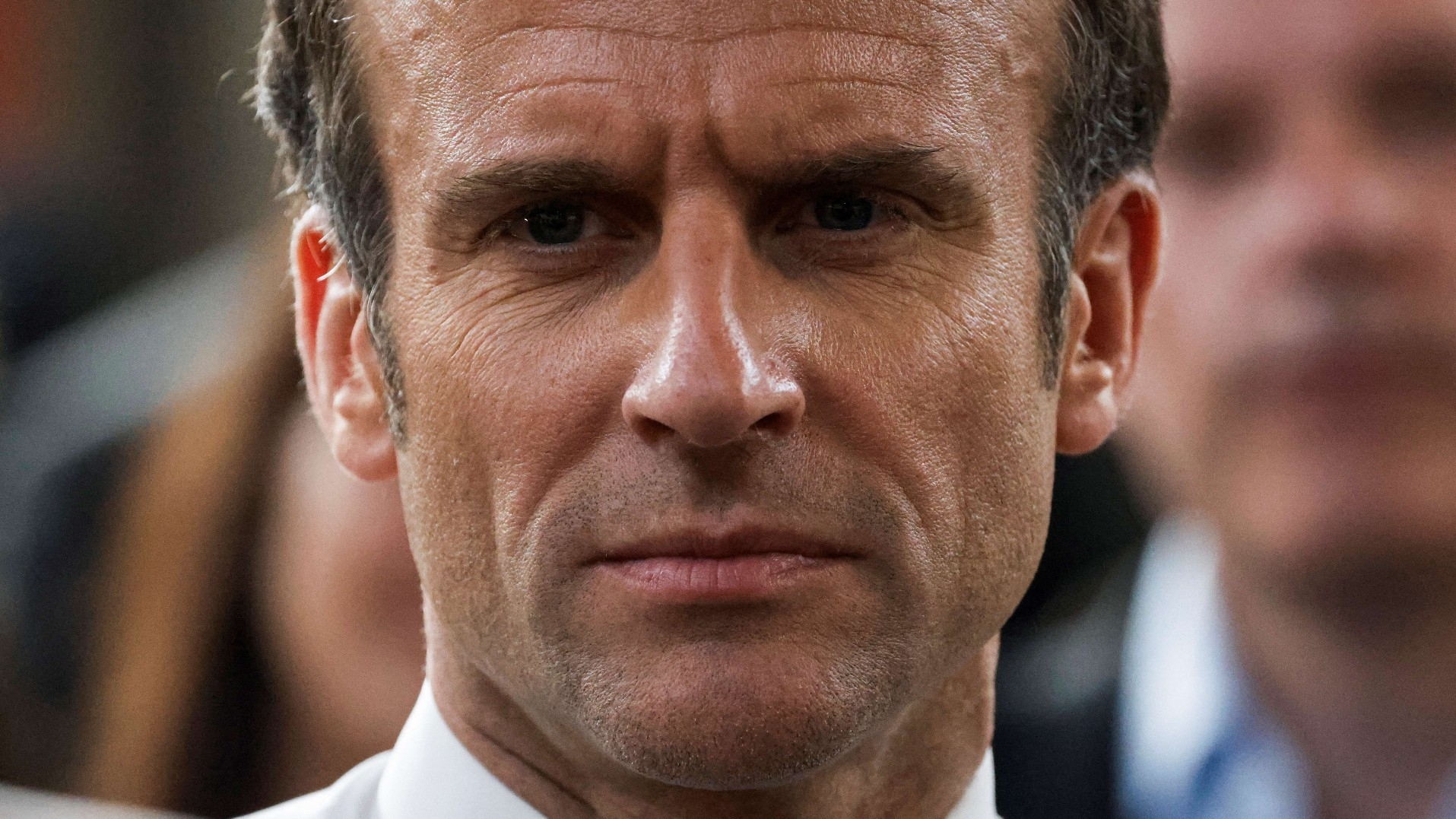
If French President Emmanuel Macron’s first term in office is any indication of what his likely second term will mean for Muslims in the country, then they have cause for concern.
In 2017, Macron was elected on the promise of an inclusive, open and modern liberal society where multiculturalism - often a dirty word in media and political circles - was valued as an asset. It was a hopeful and generous vision, standing in stark contrast to the pessimistic bigotry of his opponent, National Rally leader Marine Le Pen.
This mainstreaming of rabid Islamophobia has been consistently and powerfully fuelled by Macron's discourse, electoral strategies and policies
Unfortunately, these promises never came to fruition; far from it. Under Macron’s leadership, and largely as a direct result of his government’s discourse and policies on Islam and Muslims, France has become significantly more Islamophobic than it was before his election.
His project of “a society of vigilance” against the Islamist “hydra”, alongside legislation against “Islamist separatism” and the “Charter of Principles” of French Islam (forced down the throats of the country’s Islamic organisations), are different parts of the same enterprise. Such rhetoric portrays Muslims as a threat, and Islam as an essentially dangerous religion in need of securitisation, mass surveillance and repression.
This has led the French public to understand less and to increasingly fear the country’s Muslim population. Under Macron, Islam has come to be seen by most French citizens as an existential threat to their “civilisation”, “traditions” and “values”.
Ignorant debate
It is also under Macron that the Great Replacement conspiracy theory - dismissed by most as the heinous, racist and crassly ignorant fantasy that it is - came to the forefront of public debate. Such debate has not been limited to presidential candidate Eric Zemmour, whose staggering success is itself the direct product of a complacent political and media environment.
This mainstreaming of rabid Islamophobia has been consistently and powerfully fuelled by Macron’s discourse, electoral strategies and policies on Islam and Muslims, which have been denounced by major human rights organisations and the United Nations.
At the same time, Muslims are fleeing France in ever-greater numbers, facilitating a significant brain drain and damaging France’s soft power. This is a regrettable loss to the nation, which could have used their voices and perspectives in numerous areas of international relations, business and diplomacy.
The Islamic charter marks a particularly egregious offence, representing the authoritarian nationalisation of Islam by an ostensibly secular state. Under Macron, France has moved towards a truly eradicationist approach towards groups or organisations labelled, usually gratuitously, “Islamist” or “radicalised”.
In October 2019, Christophe Castaner, Macron’s former interior minister, told a parliamentary committee that signs of religious radicalisation included such things as wearing a beard or observing Ramadan in an “ostentatious” manner. By this logic, if something seems a tad too Islamic, it must be “radicalisation”. Such misperceptions appear to come naturally to France’s deeply Islamophobic elites.
The confusion of religious orthopraxy with dangerous extremism often follows from the fraudulent “continuum theory”, under which the former leads to the latter - a notion that has never been proven, and one that scholars and experts have largely discarded.
Criminalising dissent
Today, because of Macron’s successful efforts to move forward with legislation such as the Islamist separatism bill, the state has a whole new legal toolset with which to censor, ban or shut down anything they choose to label “Islamist”, “fundamentalist” or “extremist”, as demonstrated by recent executive decrees dissolving anti-racist organisations, such as the Collective Against Islamophobia in France.
Such policies effectively criminalise mere criticism of state Islamophobia and racism by equating it with incitement to commit terrorism against France.
Indeed, Macron’s government has criminalised entire Islamic trends and schools of thought, resolutely moving like no previous postwar administration into the domain of thought and belief control (exclusively of the Muslim variety). Dismantling French laicite itself, the Macron regime is replacing it with a new type of authoritarian, repressive management of Muslims and their religion.
These developments are alarming not only for the future of Muslims in France, but for the rule of law in general. Two complementary trends of state Islamophobia can be observed in the Macron era, targeting both public and private life.
Seemingly aiming to prevent the constitution of a Muslim civil society critical of the government, the interior ministry has been attacking publishing houses, anti-discrimination groups, Islamic schools, “Islamo-leftist” educational trends, and so on. In the private sphere, surveillance and repression are penetrating deeper and deeper into Muslims’ personal lives, including parental educational choices and child-raising practices.
Under Macron, all the logics and processes of what should be called the New French Islamophobia have been perfected, intensified and generalised: the construction of the “Islamist” bogeyman, the authoritarian disciplining of Muslims, the pathologisation of religious norms, the securitisation and neocolonial management of Islam, the denial that Islamophobia even exists, and the systematisation of state surveillance and repression of Islamic institutions.
And with Macron and his entourage proudly promising more of the same, that is what Muslims should expect in his likely second term.
The views expressed in this article belong to the author and do not necessarily reflect the editorial policy of Middle East Eye.
This article is available in French on Middle East Eye French edition.
Middle East Eye propose une couverture et une analyse indépendantes et incomparables du Moyen-Orient, de l’Afrique du Nord et d’autres régions du monde. Pour en savoir plus sur la reprise de ce contenu et les frais qui s’appliquent, veuillez remplir ce formulaire [en anglais]. Pour en savoir plus sur MEE, cliquez ici [en anglais].



